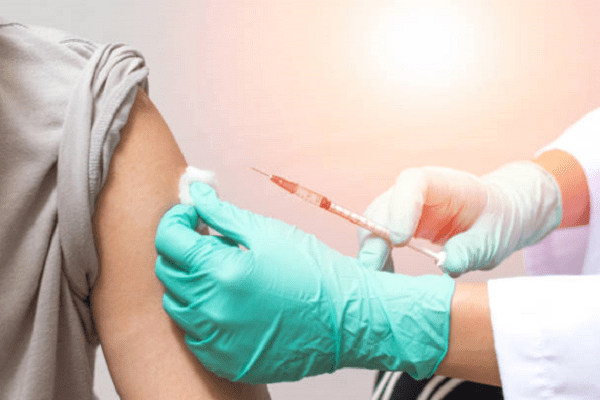Health for a lifetime >>>> How to protect yourself from pneumonia?
How to protect yourself from pneumonia?

Few people know that such a complex disease in treatment as pneumonia, which is easy to get as a complication of any innocent ARVI or "habitual" bronchitis, can be opposed in advance with protection - vaccine prophylaxis.
What microbes are vaccinated against to prevent pneumonia? These microbes (microorganisms) are bacteria of the genus Streptococcus pneumoniae (Streptococcus pneumoniae called Pneumococci), the varieties of which there are a great many in nature - up to a hundred species. Not all Pneumococci cause pneumonia, some of them are responsible for diseases that are no less terrible in their consequences (meningitis, otitis media, sinusitis and even sepsis), but the body is most vulnerable to 7-14 types of Pneumococci, which have resistance to antibiotics, which reduces to there is no drug therapy (disarms doctors) and this translates pneumonia into the category of deadly diseases, that is, diseases with a high percentage of deaths.
To protect yourself from pneumonia, you need vaccination against pneumonia, which is several types of vaccines that differ in the set of antigens - inactivated, that is, neutralized strains of Pneumococci and their particles. Vaccines to protect against pneumonia are called Pneumococcal vaccines (shots). These vaccines can be used from early childhood.
Pneumococcal vaccination schedules differ depending on the age of the person being vaccinated and the type of vaccine chosen. They can involve both a one-time vaccination and vaccination with revaccination - vaccinations are carried out in several stages at intervals from two months to 15 months. The choice of the scheme (number of injections) of vaccination against Pneumococci depends on the age-related characteristics of the formation of immune protection and is carried out under the supervision of a doctor who monitors the reaction of the human body to vaccination against pneumonia.
A feature of vaccination against Pneumococci, that is, prevention of pneumonia, is the fact that the burden and risk of bronchitis and pneumonia in the families of the vaccinated are reduced for those family members who are at risk of pneumonia - these are elderly parents and family members with chronic diseases. , weakening the body's resistance to any infections.
What types of pneumococcal vaccines are there?
Twenty-three-valent Pneumococcal unconjugated vaccine (from 23 species (serotypes) of Streptococcus pneumoniae) - PPV23. The vaccine is recommended for children (from two years old) and adults. To date, it is represented by Pneumo 23 - an unconjugated twenty-trivalent vaccine (PPV23). This is a single vaccination with revaccination after three to five years. The vaccine is suitable for children (from two years old) and adults.
Seven-valent Pneumococcal conjugate vaccine (from seven species of Streptococcus pneumoniae) - PCV7. Recommended for children (from 6 weeks of age) and adults. Presented today by Prevenar 7 vaccine.
Multivalent Pneumococcal conjugate vaccines of Streptococcus pneumoniae serotypes (for example, ten- or thirteen-valent) - PCV10, PCV13. Such vaccines are recommended for children under 5 years of age and for adults. To date, vaccines are used: Prevenar 13 - indicated for children (from six weeks of age and up to 5 years) and adults; Synflorix - a ten-valent conjugate vaccine (PCV10) is indicated for both children (from one and a half months) and adults. Vaccination is carried out in several stages with revaccination.
For revaccination, the existing vaccines listed above can be used in various temporary combinations. The vaccination schedule against Pneumococci is chosen by the doctor based on the medical history and age group.

Read

Read



























